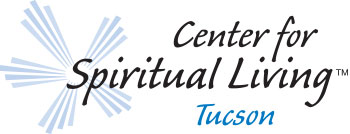Healthy Boundaries by Linda Bullock
 “Detaching does not mean we don’t care. It means we learn to love, care, and be involved without going crazy.” Melody Beatty; Codependent No More
“Detaching does not mean we don’t care. It means we learn to love, care, and be involved without going crazy.” Melody Beatty; Codependent No More
If I can stop one heart from breaking, I shall not live in vain; If I can ease one life the aching or cool one pain, Or help one lonely person into happiness again, I shall not live in vain. Emily Dickinson
Many of us have taken to heart the above words of Emily Dickinson. Enneagram Type 2 persons are described by Sandra Maitri in The Spiritual Dimension of the Enneagram as wanting “to be seen as loving, generous, kind, empathic and above all, ‘there’ for others.” (page 155). As with many personality quirks that appear to be assets, when taken too far, the character trait can become toxic to both oneself and to others. Helpfulness can be manipulative and an unhealthy way of seeking pride or ego flattery.
In The Dance of Anger, Harriet Lerner states “All change requires self-focus which is not self-blame but rather the capacity to observe and change our own steps in the pattern that is bringing us pain.” Codependents are caretakers; they have said yes when they meant no; they have bent over backwards to avoid hurting people’s feelings and, in so doing, have hurt themselves; they lack a healthy sense of self-worth. One must take action in order to heal.
“People with boundary problems usually have distorted attitudes about responsibility. They feel that to hold people accountable for their feelings, choices and behaviors is mean…. To rescue people from the natural consequences of their behavior is to render them powerless.” (Boundaries, page 43 by Dr. Henry Cloud and Dr. John Townsend)
A boundary shows me where I end and someone else begins. It always deals with me, not the other person. We set boundaries to say what we will do or will not do. Only this kind of boundary is enforceable because I can control myself. I can set limits on my own exposure to other people who are behaving poorly; I can’t change them or make them behave appropriately. Yasmin Cheyenne states “Boundaries ask us to learn how to show up for people without taking ownership of all their problems.”
To develop better boundaries and heal a sense of believing I am unlovable and not enough, I find comfort in the following affirmation from page 67 of This Thing Called You by Ernest Holmes:
I know that I am one with God.
I know that God in me is perfect.
I know that my real nature is spiritual.
I know that I exist in a boundless good, in a heavenly state, and in perfect being.
I know that my mind is being acted upon by pure Spirit.
Divine Intelligence guides me into peace, happiness and success, into joy, love and perfect life.
–Linda Bullock




